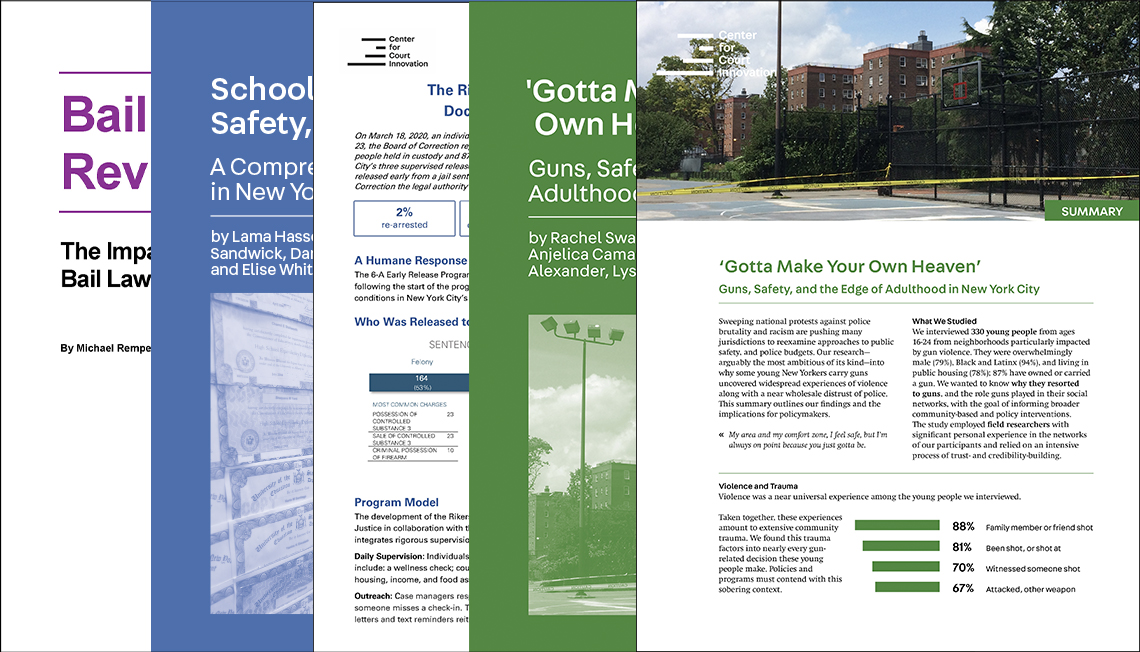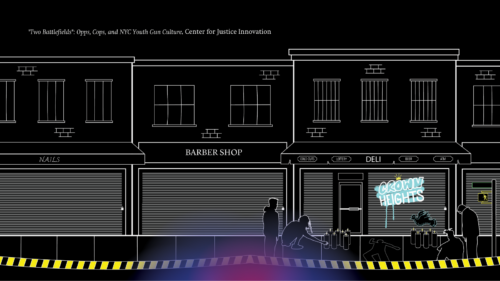Research drives our approach to justice reform. Social scientists across three distinct teams use evidence to inform policy and practice.
Our research team explores diverse justice issues, drawing on quantitative and qualitative methods to conduct impact evaluations (randomized controlled trials and quasi-experiments); implementation assessments (process and diagnostic evaluations); and exploratory, community-based research (using innovative approaches such as respondent-driven sampling and participatory action research).
The research-practice strategies team is committed to bridging the worlds of research and practice, through both rigorous study and a strong connection to on-the-ground practice. Experienced researchers and former criminal legal system practitioners work toward two broad goals: (1) performing original research that reflects the realities of practice, and (2) providing expert assistance that is rooted in data and evidence.
As subject matter experts and strategic thought-partners, the research-practice strategies team helps system leaders understand and address complex problems. The team translates research for practitioners and builds capacity for data-driven policy and practice. Assistance is tailored to local practice and culture, and sites are supported through early implementation challenges. Based on the realities on the ground, the team identifies and performs original research to offer real-world solutions.
Our data analytics and applied research team collaborates with the Center’s operating programs to inform new and existing programming through data tracking, analysis, evaluation, and surveys. Their work frequently includes measures such as case outcomes and program impacts, case processing, community needs and concerns, and perceptions of justice-involved individuals. This team also provides technical assistance to community court and diversion programs across the country.
Researchers across these teams have recently conducted studies on a wide range of topics including jail reduction and alternatives to incarceration, violence prevention, school safety, pretrial reform, restorative practices, reentry, procedural justice, the sex trade, problem-solving justice models, risk assessment, and 6th amendment protections.
Read our research

